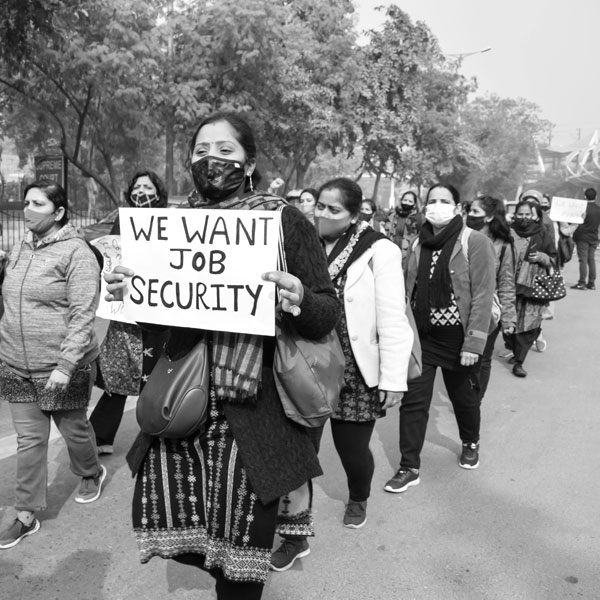Global Gender Report 2024 highlights the 131-year wait for gender equality

[Women protesting | Photo Credit to Pexels]
The Global Gender Gap Report 2024, released on June 11th by the World Economic Forum, presents a shocking estimate that women will not achieve parity with men for another 131 years.
Even more daunting, it will take 169 years for women to reach global economic parity and 162 years for political parity.
Compared to last year’s Global Gender Gap Report 2023, the overall measurement of gender equality in economics, politics, health, and education has improved by a mere 0.3%.
The World Economic Forum’s report evaluates gender parity in 146 countries across four key areas: Economic participation and Opportunity, Education Attainment, Health and Survival, and Political Empowerment.
As of 2024, among these countries, 50.1% showed an increase in their scores, 6.1% reported no change, and 43.8% experienced negative changes.
Additionally, within the four main sectors, the report has provided evident evidence of slow progress globally.
For instance, Economic Participation remains one of the most challenging areas, with only 60.5% of the gap closed as of 2024.
Significant barriers to workforce entry, particularly advancement in leadership roles, especially in technology and engineering, and the ongoing gender wage gap contribute to this low percentage.
Political Empowerment exhibits the largest gap, with only 22.5% of it closed.
The United States dropped from 27th to 43rd place, with an overall parity of 74.8% much because of a sharp decline within the Political Empowerment index.
Similarly, India slipped down two ranks to the 129th position, with a score of 0.641, while Sudan, a new entry on the index, ranked last.
The report also notes a regression in the overall economic participation gap, a consequence of the “post-pandemic crisis.”
As a result of the Covid-19 pandemic, major setbacks for gender parity on a global scale, such as attempts at achieving equality in education, voting, and the workforce, have occurred due to the economic impact.
Since the first report in 2006, there has been only a 4.1% overall improvement.
Despite these challenges, the report highlights some positive developments.
Nine countries, including Iceland, Norway, Finland, New Zealand, Sweden, Germany, Nicaragua, Namibia, and Lithuania, have closed at least 80% of their gender gap.
Specifically, Iceland has been the most gender-equal country for 14 years, with the latest report showing it has closed at least 91.2% of its gap.
Among the four gender gap areas, Health and Survival performed the best, with 96% of the gap closed, although disparities in life expectancy and healthcare services persist in some regions.
Similarly, Educational Attainment also showed growth, with 94.9% of its gap closed.

- Jooha Roh / Grade 9
- Korea International School

![THE HERALD STUDENT REPORTERS [US]](/assets/images/logo_student_us.png)
![THE HERALD STUDENT REPORTERS [Canada]](/assets/images/logo_student_ca.png)
